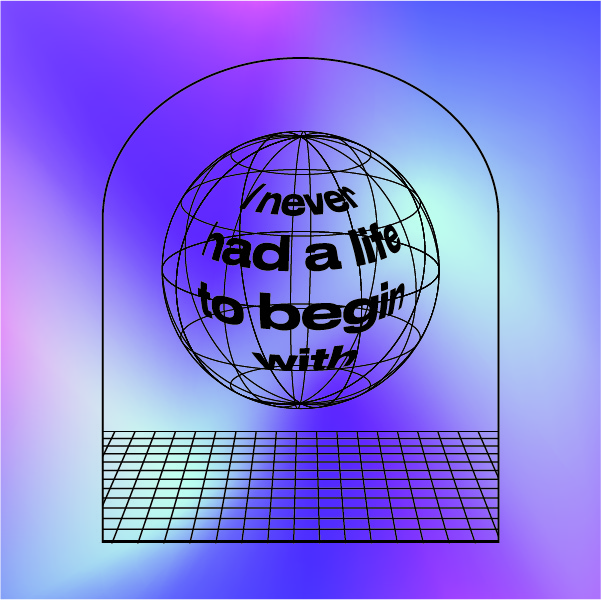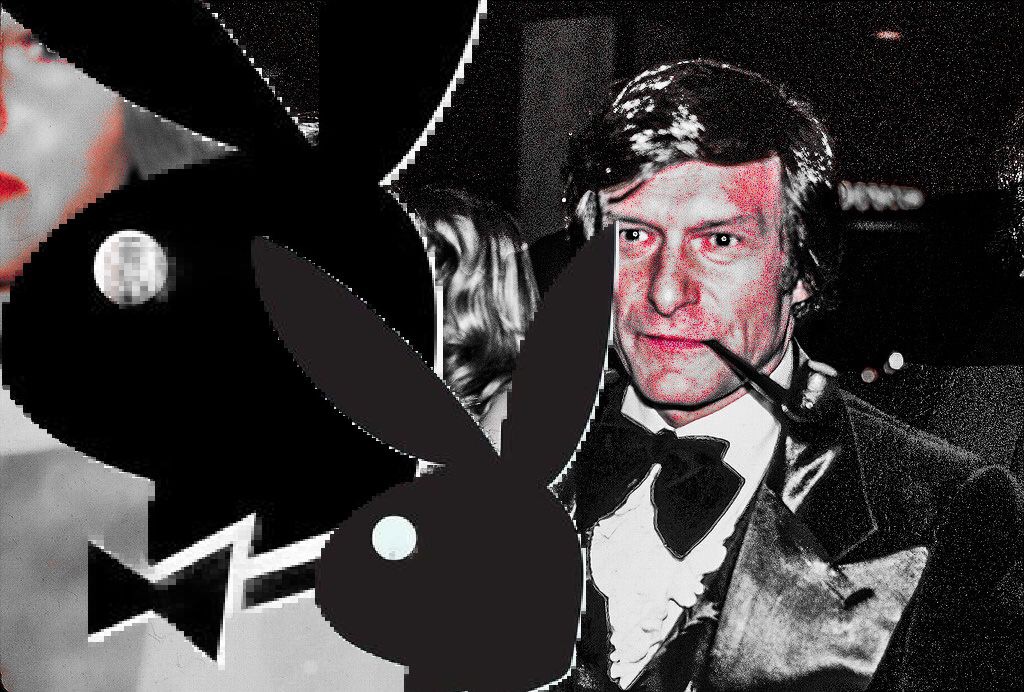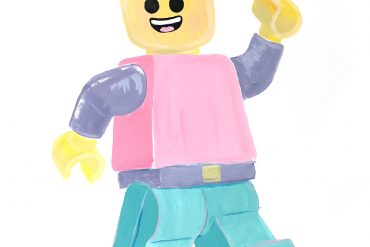A dizzying array of neon blue lights assault my eyes as club music batters my eardrums. Luckily, I can at least turn down the music, as this isn’t the “real” world, which would explain the legion of odd figures hanging around the club. The majority are various anime characters; however, there is a legion of intentionally nonsensical models, such as bicycles, anthropomorphic frogs, and a chimpanzee. Though perhaps I shouldn’t be too quick to judge, as I was dressed as a T-Rex in a tweed suit. This scene is a mixture of the mundane and dreamlike madness, both of which are choices by the creators and users of the medium I am on, VRChat. The madness endows users with relative expressive freedom, and luckily for me plenty of stories to tell, while the mundane allows them to gain a sense of being somewhere comfortable.
While most of us still see computers as tools of work, entertainment, or communication, the residents here skirt the line between our reality and another. One of the figures I spoke to, a goth anime man with a bushy white tail who uses the handle “Spook,” told me that the madness was one of the best parts of the platform. “I come on expecting something random, which can lead to a lot of fun interactions.” Spook was a streamer, who first came to VRChat the day it launched, his birthday. “In six years I’ve seen a lot of changes, mostly waves of people turning into groups. Spammers, chatters, and streamers, which are my people.”
VRChat was something personal to Spook, partly because it was where he met his current girlfriend, “Kiwi,” a white haired anime girl who joined shortly after the interview started. Throughout our conversation, the two petted each other’s heads and cuddled in a way similar to what you may see in any young couple, with Spook referring to Kiwi as “Baby.”
The two of them met through their VRChat “family” in which they were brother and sister.
“It wasn’t no Alabama type shit, nothing like that,” Spook explained, they just got used to playing games together and then started talking; eventually Spook asked Kiwi out. They plan to meet in person one day, but have no date in mind, as they live across the country from one another.
I asked Spook if he acted differently in VR than he does in the real world, seeing how one of the strongest relationships in his life was on here. His initial answer was: “I never had a life to begin with.”
He went on to explain that there was indeed a sort of cognitive dissonance. I then asked what role VRChat would have in their future. Spook planned to stay on here regularly, and Kiwi was planning on “expending [her] arsenal” so she could start streaming as well.

I left the two of them to their cuddling. An anthropomorphic frog and VR expert who I met on another world explained that this was fairly common behavior on the platform. “Immersiveness and body language REALLY helps,” he said.
Each pair of virtual reality goggles track the movement of players, as do the two hand held controllers, but you can buy sensor boxes, which will track your entire body and translate it into the game. I got to see this in action when a man used his $1000 equipment to dance “Gangnam style.” The controllers also allow players to interact with objects in the world, such as dice, markers, and even a functioning piano, on which the frog (AKA “Hyperbola”) played a rendition of a song from the game “Undertale,” an especially impressive task considering how he had never so much as touched a real piano. Hyperbola was a game developer for VR who initially had a hatred of the platform but was now a regular player. He explained that the key was to not “give up” and to keep “fighting through the motion sickness,” which was worth all the socializing that he did here, far more than in his regular life.
This was something I watched all night. It amazed me how groups of total strangers would form together and leave as friends, though there was of course a contingent who used their relative anonymity for sub-nefarious purposes, shouting slurs, whispering threats, or dressing up like Klan members to illicit some public response; but here, too, there was a special tool that made all of their annoying antics obsolete, the block button.
“That’s what I love about it” explained “Brick”, yet another anime character, wearing a fishing hat with a pot leaf on it. She proved this when a Halo trooper appeared to inform us that he was pleasuring himself to our conversation. Brick’s response was “You can just block him.”
In real life Brick was a bartender who started here just when the quarantine was winding up. She explained that despite her job, she was a very insular person in the real world, but not here.
“I’m way more likely to hang out on here. Like, I would never do this [interview] in real life,” she said, explaining that she was deeply involved in the VR club scene and a staff member at a DJ club here. Brick talked about how freeing this space was, that she enjoyed being judged only on her personality. And in-spite of her not being too social in real life, VR changed that when the group of friends she made here visited her on her birthday. “They all took a road trip, so this guy (she pointed to her friend “Foop”) drove from Cali to Arizona and New Mexico to pick up two other people, and then out to me.”
To Brick, VRChat meant freedom from shyness and worry, but for Brick’s friend Foop, VRChat meant another kind of freedom, a monetary one. “It’s just really convenient, I don’t have to spend gas money to drive to a club and buy 50 dollar shots. I can just get a cheap bottle of vodka and come on here whenever I want.”
There’s a surprising trend towards normalizing VRChat despite it’s seemingly endless possibility. Most people opt to be humans, and all the most popular spots aren’t fantastical worlds of adventure, but bars, clubs, and apartments. VRChat exploded in popularity in 2020 during the pandemic lockdowns, and there’s an incredible sense of humanity wherever you go. People flock around mirrors like campfires, tell jokes, hug, and even fall in love.
Images by Steph Bianco





